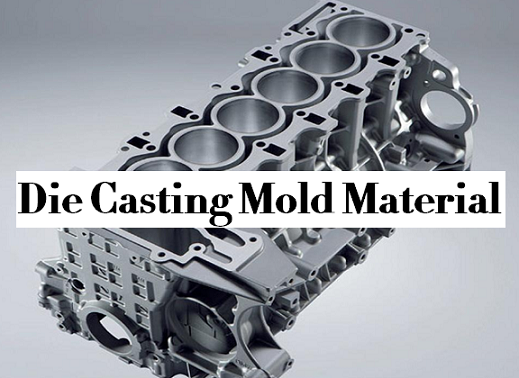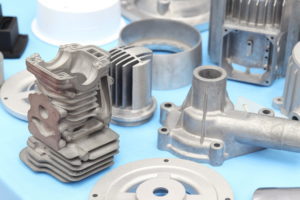Some Known Details About Stahl Specialty Company
Some Known Details About Stahl Specialty Company
Blog Article
Some Known Factual Statements About Stahl Specialty Company
Table of Contents3 Simple Techniques For Stahl Specialty CompanyStahl Specialty Company Can Be Fun For AnyoneFascination About Stahl Specialty CompanyNot known Details About Stahl Specialty Company Not known Details About Stahl Specialty Company The Buzz on Stahl Specialty Company

If you're creating a steel item, you've likely thought about utilizing aluminum as the base product. It has a high strength-to-weight ratio, good deterioration resistance, great formability, and aesthetic charm. These elements have brought about its boosted popularity in recent times. Pure light weight aluminum has restricted applications, so it is usually incorporated with other components, such as silicon, magnesium, and manganese to form alloys.
(AA), based in North America, has produced requirements that regulate aluminum alloys' structure, buildings, and nomenclature. There are 2 types of aluminum alloys wrought and cast.
Not known Factual Statements About Stahl Specialty Company
Cast light weight aluminum alloys are made by thawing pure aluminum and combining it with various other metals while in fluid kind. The mix is poured right into a sand, pass away, or investment mold. After solidification, the metal is gotten rid of from its mold and mildew. At this stage, it remains in either its final kind or as a billet or ingot for additional processing.

As an example, 160.0 stands for a cast with a minimum of 99.60% light weight aluminum. The fourth figure, which follows the decimal point, specifies if the alloy is a spreading (xxx. 0) or an ingot (xxx. 1). Wrought light weight aluminum alloys additionally begin by incorporating molten light weight aluminum with other steels. Unlike cast alloys, however, they are formed right into their last form with processes such as extrusion, rolling, and bending after the steel has solidified right into billets or ingots.
There are many minor differences between wrought and cast aluminum alloys, such as that cast alloys can have more significant amounts of various other steels than functioned alloys. Yet one of the most noteworthy difference in between these alloys is the construction process whereby they will most likely to supply the end product. Other than some surface treatments, cast alloys will leave their mold and mildew in nearly the precise strong form desired, whereas wrought alloys will certainly go through a number of modifications while in their strong state.
If you assume that a wrought alloy may be the ideal for your task, have a look at some of our articles that clarify even more regarding specific functioned alloys, such as Alloy 6061 and Alloy 6063. On the other hand, if you think an actors alloy would be better for you, you can find out a lot more regarding some actors alloys in our Alloy 380 and Alloy 383 write-ups (coming quickly).
The Main Principles Of Stahl Specialty Company
When choosing a light weight aluminum factory for your manufacturing demands, it's important to examine a number of factors. One of one of the most crucial elements to consider is the experience and skills of the shop. Aluminum Casting. Selecting a shop that has the right understanding of the light weight aluminum spreading process, and the portfolio to reveal for it, aids to have an effective outcome for your project
Having the experience and market understanding to craft your castings for optimal production and high quality end results find here will certainly simplify the project. Making aluminum spreading requires a complex collection of procedures to attain the right results. When selecting a brand-new light weight aluminum shop to companion with, guarantee they have extensive industry experience and are well-informed regarding all elements of the aluminum spreading process: style, production, material analysis, and product testing.
The foundry should also have a proven record of delivering outstanding items that fulfill or go beyond consumer assumptions. Quality assurance needs to additionally go to the top of your checklist when selecting an aluminum factory. By collaborating with a qualified foundry who complies with the standards for quality assurance, you can protect the integrity of your product and ensure it fulfills your requirements.
By choosing a company that provides services that fulfill or exceed your item demands, you can be sure that your job will be finished with the utmost precision and performance. Various parts call for different production methods to cast aluminum, such as sand spreading or pass away spreading.
Examine This Report about Stahl Specialty Company
Die spreading is the name provided to the process of producing intricate metal elements with usage of molds of the part, likewise called dies. The procedure utilizes non-ferrous metals which do not include iron, such as aluminum, zinc and magnesium, as a result of the desirable residential or commercial properties of the steels such as low weight, greater conductivity, non-magnetic conductivity and resistance to deterioration.
Die casting manufacturing is fast, making high production degrees of elements simple. It creates more elements than any type of various other process, with a high level of precision and repeatability. To get more information concerning die casting and die casting products made use of in the process, continued reading. There are three sub-processes that fall under the group of die casting: gravity die spreading (or permanent mold and mildew casting), low-pressure die spreading and high-pressure die casting.
No matter the sub-process, the die casting procedure can be broken down into 6 steps. After the purity of the alloy is tested, dies are created. To prepare the passes away for casting, it is essential that the passes away are clean, to make sure that no residue from previous productions remain. After cleaning, the ejection lubrication is related to the die to ensure a smooth release.
Not known Facts About Stahl Specialty Company
The pure steel, additionally referred to as ingot, is contributed to the heater and kept at the molten temperature of the steel, which is then transferred to the shot chamber and infused right into the die. The pressure is then kept as the steel strengthens. When the steel solidifies, the cooling process starts.
(https://www.reddit.com/user/stahlspecialc/)
The thicker the wall surface of the component, the longer the cooling time as a result of the quantity of indoor metal that likewise requires to cool down. After the element is fully cooled, the die cuts in half open and an ejection device pushes the part out. Adhering to the ejection, the die is shut for the next injection cycle.
The flash is the added material that is cast throughout the process. Deburring gets rid of the smaller sized pieces, called burrs, after the cutting process.
The Buzz on Stahl Specialty Company

Zinc is one of the most used alloys for die casting due to its reduced price of raw products. Its rust resistance additionally permits the parts to be long enduring, and it is one of the more castable alloys due to its reduced melting point.
As discussed, this alloy is just one of the most frequently utilized, yet manufactures will, sometimes, choose light weight aluminum over zinc because of aluminum's production advantages. Light weight aluminum is extremely economical and one of the more functional alloys. Aluminum is made use of for a number of various products and sectors anything from window structures to aerospace materials.
Report this page